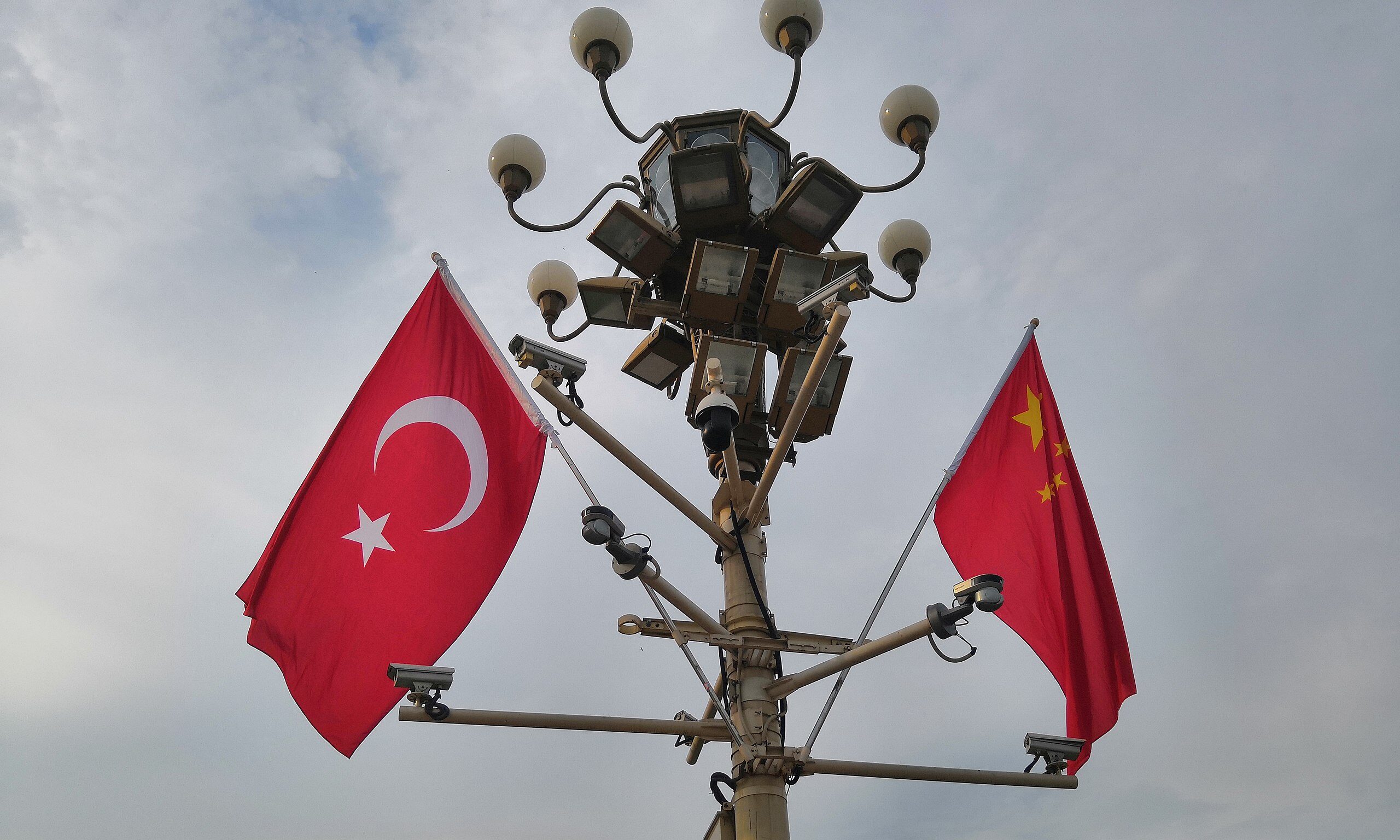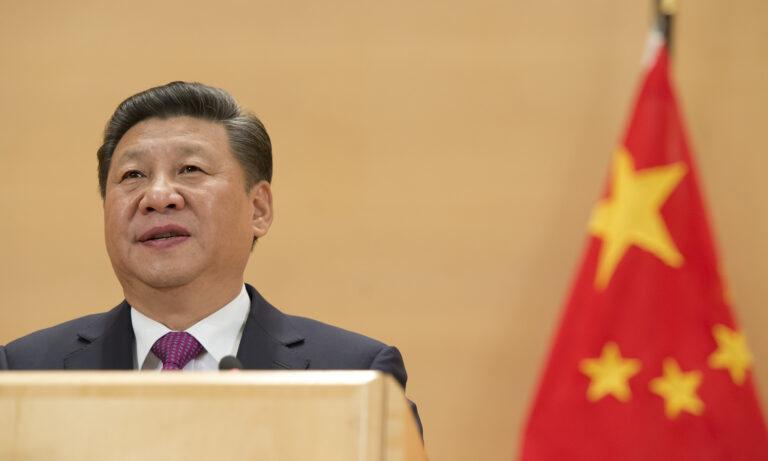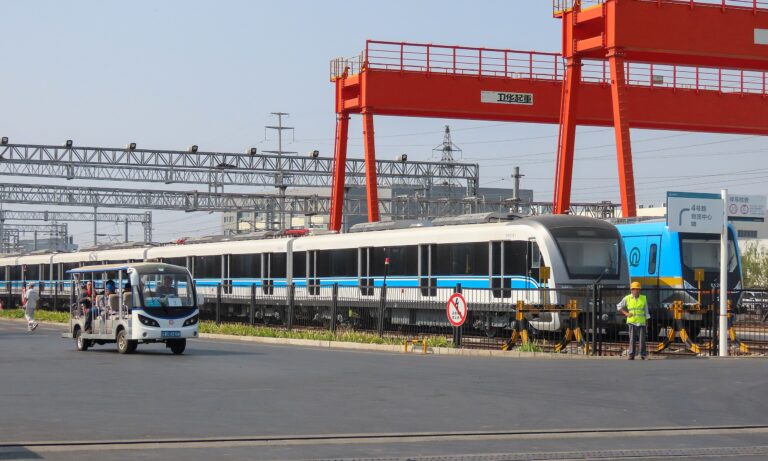
Ties between Beijing and Ankara have exhibited signs of budding rapprochement.
This article was originally published at China Foresight, LSE IDEAS, and is republished here as part of a partnership between CHOICE and China Foresight.
In early 2023, the Turkish government expressed exceptionally open public criticism of China concerning the rights of the Uyghur Muslim minority in China’s Xinjiang region. Notably, in his end-of-year press conference in December 2022, former Minister of Foreign Affairs, Mevlüt Cavuşoğlu, said that bilateral relations between Turkey and China had deteriorated because Beijing was “disturbed” by Ankara’s policy of “defending the rights of the Turkic Uyghurs in the international arena”. He openly criticised Beijing for not permitting the Turkish ambassador to freely visit Xinjiang and instead trying to dictate the terms of the visit: “Why should we become a tool for China’s propaganda?”
Fast-forward to July 2023, China’s newly re-appointed Minister of Foreign Affairs Wang Yi met with Turkey’s new Foreign Minister, Hakan Fidan, and Turkish President, Recep Tayyip Erdoğan, in Ankara to “enhance mutual strategic trust and deepen cooperation” between the two countries. While the situation of the Uyghur community in Xinjiang remained on the agenda, Ankara seemed to have toned down its rhetoric and emphasized mutual gains out of a stronger economic and political partnership between the two countries. In Wang Yi’s meetings, there was a lot of focus, particularly on strengthening cooperative mechanisms between Turkey and China in order to develop coordination in various sectors including energy, trade and tourism.
It is not unexpected that the Turkish government seeks enhanced cooperation with China as the Turkish government needs capital inflow to deal with the effects of the economic crisis in Turkey. With inflation soaring and the Turkish Lira at a historical low, Ankara needs partners who are willing to invest in Turkey. Reportedly, Wang Yi told his counterpart Hakan Fidan that Beijing would encourage more Chinese companies to invest in Turkey as a part of China’s Belt and Road Initiative.
One of the sectors that Chinese businesses seem to be increasingly interested in is Turkey’s defense industry. Wang Yi’s visit coincided with the International Defence Industry Fair (IDEF) held in Istanbul on July 25-28, 2023 where defense companies showcased the latest technology, products and services. A record number of Chinese companies attended this year’s fair, seeking business and investment opportunities to expand their operations.
One of the reasons for the Turkish government’s sharper rhetoric and public criticism of China earlier in the year arguably had to do with domestic concerns about public perceptions of government policies. The ruling Justice and Development Party (AKP) and its ally, the Nationalist Movement Party (MHP), were challenged and criticized by opposition parties for failing to take a consistent stance on the rights of the Turkic Uyghurs in China and for being too “silent” on this issue. Iyi Party, for example, which was the second largest opposition party in the Nation Alliance (Millet İttifakı) after the Republican People’s Party (CHP), often accused the government of toning down the rhetoric about the Uyghurs to avoid antagonizing Beijing and argued that the government failed to take concrete action on this issue in the international arena. The fact that former Foreign Minister Mevlüt Çavuşoğlu took the time in his end-of-year speech to deny the claims on social media that Turkey was extraditing Uyghurs holding Turkish citizenship to China was a sign that the government was concerned with addressing the public perception of its policies on the Uyghur issue. Considering the rise of Turkish nationalism both in pro-government and opposition camps in the context of the May 2023 general elections in Turkey, it was reasonable for the government to address concerns of voters with nationalist views who may prefer their government take an active stance on the issue of Uyghurs.
Since the electoral victory of the AKP and its allies once again, the new cabinet has concentrated on immediate concerns in the domestic arena namely the impacts of a growing economic crisis in Turkey. Revitalizing cooperation with China not only has economic motives related to the government’s ability to attract foreign investment but also has a political drive related to Ankara’s pursuit of greater influence by connecting Central Asia to Europe. In his meeting with China’s minister of foreign affairs Wang Yi, Turkish President Recep Tayyip Erdoğan underlined the importance of “strengthening the link between Türkiye’s ‘Middle Corridor’ plan and [China’s] ‘Belt and Road’ initiative” through various cooperative mechanisms.
At the same time, strengthening cooperation with Turkey has benefits for China’s strategic objectives in the region. From billion-dollar construction and energy deals in Iraq to mediation between Saudi Arabia and Iran, China has increased its engagement with the Middle East, challenging US influence in the region. For Beijing, Ankara can be an important partner in the Middle East and the eastern Mediterranean and in China’s foreign policy initiatives namely the Belt and Road Initiative. During his visit, Wang Yi underlined that China was willing to work with Turkey to advance cooperation in the Belt and Road initiative and that “the two sides share broad common interests, with no conflict of fundamental interests”.
Overall, it is reasonable to expect a strong and continuous emphasis on mutual gains out of cooperation in Turkey-China relations in the foreseeable future.
Written by
Buğra Süsler
BugraSuslerDr Buğra Süsler is a lecturer in international organizations and international conflict and cooperation at University College London Political Science Department and Visiting Fellow and Head of Turkey and the World at LSE IDEAS, London School of Economics


